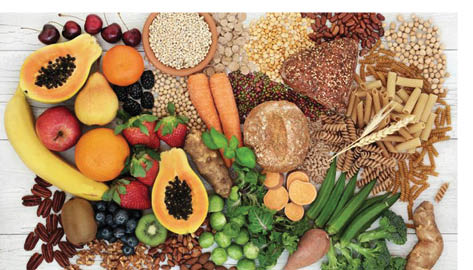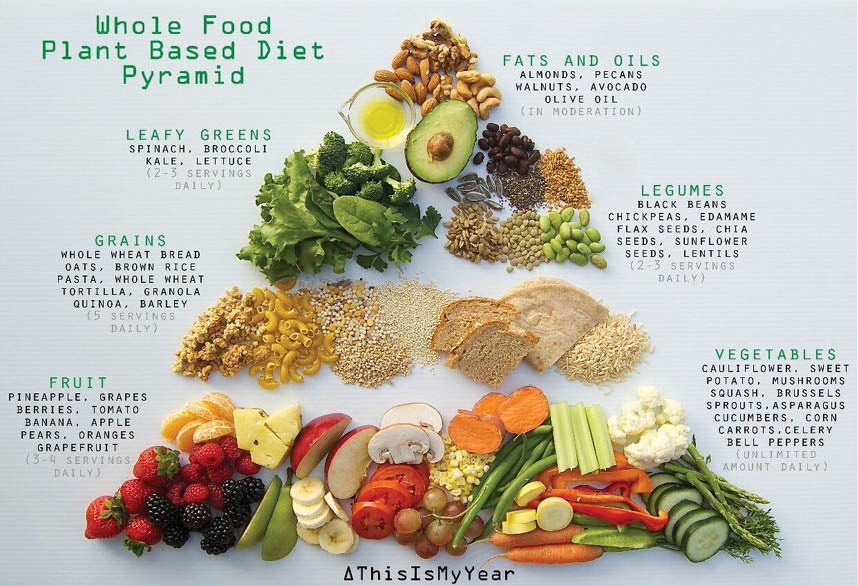Dr. Danesh D. Chinoy is a leading Health and Wellness Coach, Sports Physiotherapist and Psychologist. He is dedicated to helping all to heal holistically and remain fighting fit for life. Providing eye-opening and ground-breaking insights into Wellness, Dr. Chinoy’s two-decades’ rich expertise has won him innumerable awards, nationally and globally. His mission is to empower you to reach your highest levels of wellness/fitness. You can connect with Dr. Chinoy at: daneshchinoy@gmail.com.
 If you’ve been following my writings, you know that science shows changing your eating habits is a powerful way to live healthy and fighting fit for life. Every time I write about a food item that should be excluded from our daily diet, I have many readers who express their strong intent to practice and seek to know the general principles of healthy eating. So today, let me share with my dear readers the key to healthy eating. One of the most powerful steps you can take to improve your health, boost energy levels, and prevent chronic diseases is to move to a ‘Whole-foods, Plant-based’ approach to eating.
If you’ve been following my writings, you know that science shows changing your eating habits is a powerful way to live healthy and fighting fit for life. Every time I write about a food item that should be excluded from our daily diet, I have many readers who express their strong intent to practice and seek to know the general principles of healthy eating. So today, let me share with my dear readers the key to healthy eating. One of the most powerful steps you can take to improve your health, boost energy levels, and prevent chronic diseases is to move to a ‘Whole-foods, Plant-based’ approach to eating.
There’s compelling scientific evidence that many chronic diseases can be controlled, reduced and even reversed by moving to a whole-food, plant-based eating approach. Scientific research highlighted in the landmark research done over a period of more than two decades ‘The China Study’ shows that a plant-based diet can reduce the risk of type 2 diabetes, heart disease, many types of cancers and other major illnesses. Many people also report bigger fitness payoffs, more energy, reduced inflammation, and better health outcomes after making the switch.
As the name suggests, a Whole-food, Plant-based eating approach is based on the following two simple principles:
- Whole foods describe natural foods that are not much processed. That means whole, non-(or minimally) processed and unrefined ingredients. Foods in its natural form, just as nature intended it to be.
- Plant-based means food that comes from plants and doesn’t include any animal ingredients such as fish, meat, milk and eggs.
A whole-food, plant-based eating approach helps you meet your nutritional needs by focusing on natural, minimally-processed plant foods. Purchase foods that grow on plants and avoid food products that are manufactured in plants.
Some of the numerous benefits which you reap when you move to a Whole food, plant-based nutrition, all supported by research-based science, include:
Easy Weight Management: People who eat a whole food, plant-based food tends to be leaner, stronger and fitter. These food habits makes it easy to lose weight and keep it off – without counting calories. Yes! When you eat clean and green, you can eat as much as you want without having to bother counting calories. You were taught to count calories as the refined, processed or animal-based foods have less nutrients and are more calorie dense as against whole food, plant-based foods that are the opposite. If you’re looking at a slim waistline, you know what you need to do!
Disease Prevention: Whole-food, plant-based eating can prevent, halt, or even reverse chronic diseases, including heart disease, Hyper-tension and type 2 diabetes.
A Lighter Environmental Footprint: A plant-based diet places much less stress on the environment.
Here’s a list of the major food categories you’ll love and enjoy on a whole food, plant-based eating approach:
Fruits: All types of fruits that you like to have. Apples, Bananas, mangoes, sweet lime, oranges, pineapples, grapes, avocados (a super food fruit which is now easily available with our Mumbai fruit vendors), cherries, strawberries, mulberries, black berries, blue berries etc. Just make sure fruits are eaten just by itself, ideally on an empty stomach and at least an hour to fourty-five minutes before regular meals. Always prefer whole fruits rather than juicing them as that robs it of its all-important fiber.
Vegetables: Plenty of veggies including green veggies like lettuce, Palak, methi, green-peas, cabbage, cauliflower etc.
Tubers: Root vegetables like potatoes, carrots, radish, sweet potatoes, beets etc.
Whole Grains: Grains, cereals, and other starches in their whole form, such as jowar, ragi, bajra, brown rice, oats, etc. Even popcorn is a whole grain.
Legumes And Sprouts: Beans of all kinds, plus lentils, pulses, and similar ingredients. Sprouts such as moong, chana, titoli, rajma, chawli, methi, masoor etc. Sprouts are living foods and ideally be consumed raw as then you get the benefit of the live enzymes that it contains.
Nuts, Seeds And Dry Fruits: All kinds of nuts, seeds and dry fruits should be a part of our daily eating as it’s a power house of good nutrients. Almonds, walnuts, khajoor, anjeer, pumpkin seeds, sunflower seeds, melon seeds etc. should be included in small quantities on a daily basis. For those who miss milk, can opt to prepare nut-based milk by simply grinding soaked nuts with water.
Spices And Condiments: Spices and condiments can be used to flavour the food as per one’s taste. Just make sure you get them in its pure form and can grind them at home so that you avoid chemical flavouring and added preservatives. Turmeric, in particular, should be used generously as it’s a very potent anti-inflammatory.
Fermented Foods And Beverages: Plant based fermented foods and beverages should be included regularly for good gut-health.
Sea Vegetables: With increased health awareness, there is an increased demand for sea vegetables such as kombu, nori, wakame, arame, sea palm etc. which are now readily available in Health food stores in Mumbai and elsewhere. If you have access and find it affordable, do include these nutrient dense vegetables.
Also, ensure to regularly check your Vitamin B12 and vitamin D levels and if found to be insufficient, please take supplements for the same. Even non-vegetarians are regularly lacking these two vitamins due to the excessive use of pesticides and other chemicals, as also the lack of adequate sunlight exposure in our daily lifestyle.
Whole-food, plant-based eating is cheaper than you think. Fresh produce goes a long way, and whole grains, potatoes, and beans are some of the most affordable bulk foods you can buy. Create meals around these staple items and you’ll definitely spend less than you do on a meal rich in meat and other animal products.
I understand that after years of eating unhealthy refined food stuffs, a sudden shift to whole food, plant-based eating isn’t easy for everyone. I encourage people to not sweat the small stuff and to look at the big picture instead: Focus on the big changes like switching from fish, meat, milk, and eggs to whole plant foods. Such changes dramatically improve the nutritional composition of your diet, so this is where you will find the most noticeable and measurable improvements in your health. The time to start making the change is now. You’ll be glad you did!
- The Healing Power Of ‘Shinrin-Yoku’ (Forest Bathing) - 28 December2024
- The Incomparable Health Benefits Of Plant-Based Diet - 30 November2024
- The Role Of Physiotherapy In Mental Health: A Holistic Approach - 28 September2024
